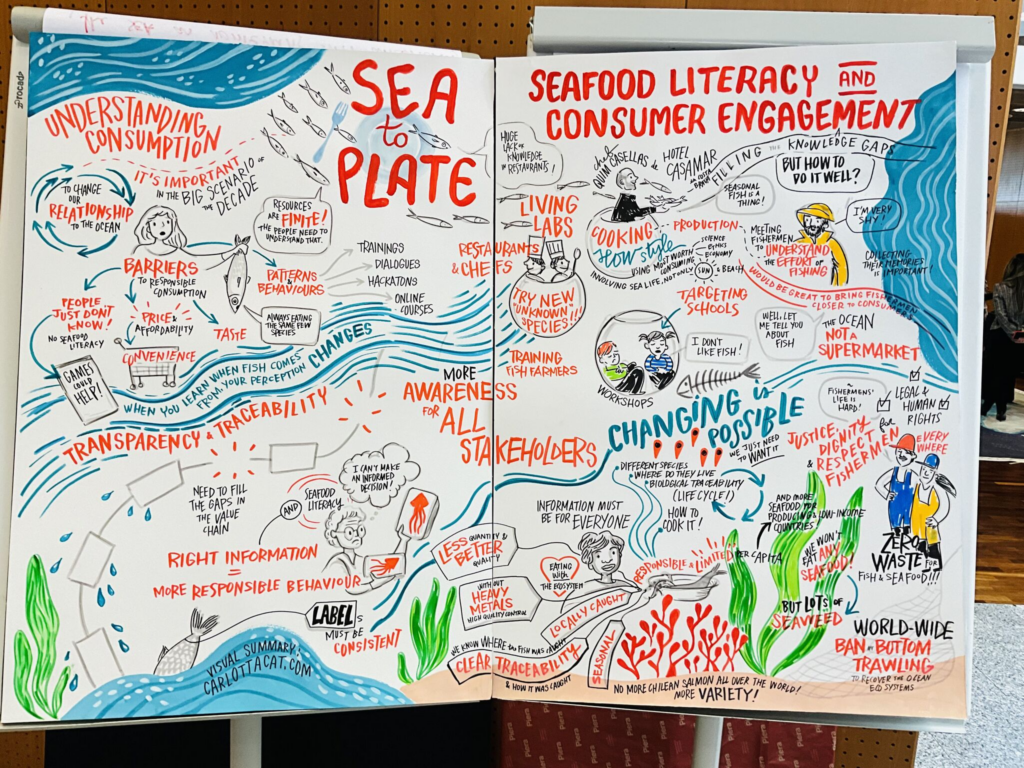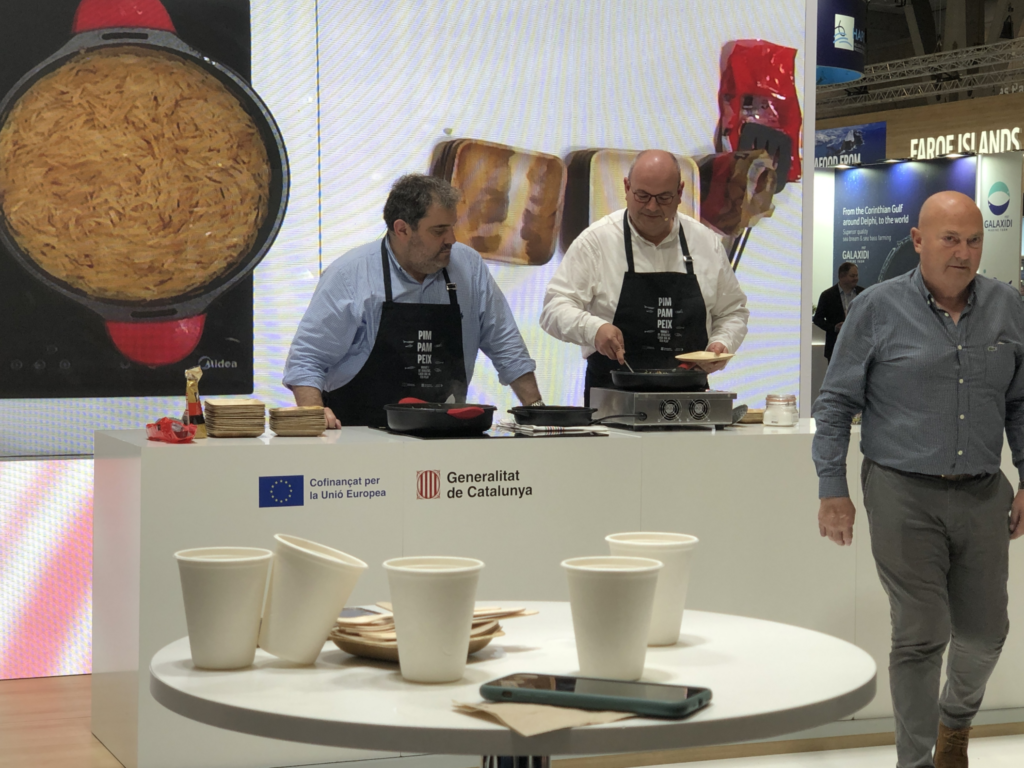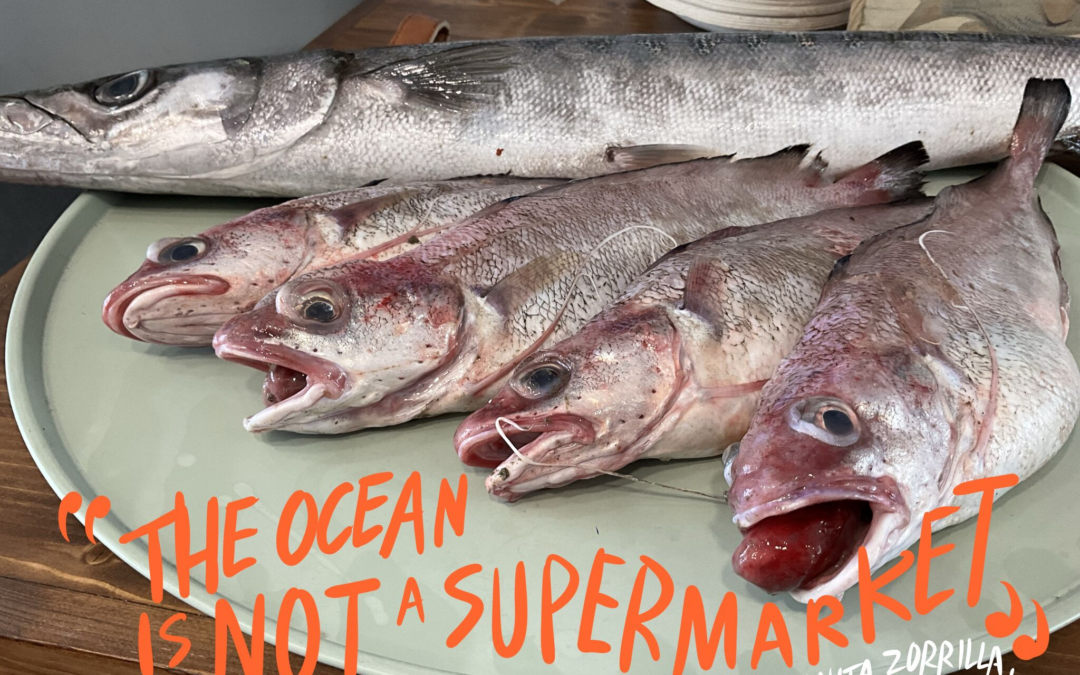Contributor: SUBMON
April has been a whirlwind of activity for the world of seafood, with Barcelona at the epicentre of two pivotal events focused on the ocean and seafood, where seafood literacy was one of the main topics. Both the 2024 United Nations Ocean Decade Conference and the Seafood Expo served as platforms for meaningful discussions, with the SEA2SEE project playing an active role in both events, highlighting the importance of seafood literacy for sustainable and responsible consumption.
At the heart of these events was a shared recognition of knowledge and ocean literacy’s critical position in shaping responsible seafood consumption.
Ocean Decade: presenting progress and action-oriented sessions
During the Ocean Decade Conference week in Barcelona (April 8th to 12th), SEA2SEE hosted a round table discussion in the framework of the Ocean Literacy Dialogues from UNESCO. The event featured representatives from FishEUTrust, the sister project, and GastroBio, an innovative endeavour that merges biology, Fisheries and Gastronomy. The focus was seafood literacy to promote responsible consumption through improved traceability, awareness actions and consumer empowerment.
Once the round table was over, we then conducted a collaborative activity where we encouraged the audience to imagine the ideal scenario for the seafood sector in the future, taking us to the year 2035. To make the event more dynamic and present the results of the workshop in a creative way, we had the participation of the graphic facilitator, Carlotta Cataldi, who accompanied us throughout the event and created a visual representation of everything that was being discussed.
These were some of the main conclusions drawn during the workshop:
- Lack of seafood literacy and knowledge is a primary barrier to sustainable seafood consumption.
- Access to accurate information is crucial for promoting responsible behaviour.
- Transparency and traceability are essential to ensure accountability in the seafood supply chain.
- Information accessibility should be prioritised for all stakeholders, including chefs, restaurant owners, and fishermen.
- Increased awareness across the seafood sector is necessary to drive positive change towards sustainability.

Following the round table, the day’s highlight included a captivating show-cooking session led by the renowned chef Quim Casellas of CASAMAR restaurant. The session emphasised the significance of consuming seasonal foods, respecting natural cycles, and fostering sustainability in our oceans. Quim presented a captivating interconnected vision of the territory, where the sea and land harmonise through gastronomy and community, highlighting the holistic relationship between local producers and the interplay of land and sea. Attendees were encouraged to adopt responsible consumption practices, thereby nurturing and preserving the Mediterranean region.
He also showcased lesser-known species characterised by high nutritional value and rich gastronomic potential. This initiative aimed to promote diversity in seafood consumption, offering options that are both affordable and accessible without compromising on quality or taste.
Besides participating in the official sessions, we also had the opportunity to exhibit and present a scientific poster on the SEA2SEE’S Hackathon. This challenge aimed to develop a complementary tool based on blockchain technology to help consumers make informed and responsible decisions in order to address traceability and consumer communication issues identified as major barriers to sustainable seafood consumption.
Thoughts from the Seafood Expo
Two weeks later, the Seafood Expo offered a vibrant platform for exploring the diverse landscape of seafood products. We were amazed by the abundance of products, each promising a unique culinary experience and market opportunities. However, listening to the different sessions, one thing became abundantly clear: knowledge is critical to navigating the world of seafood consumption. As Arnau from GastroBio pointed out, “A product is a product. However, with knowledge, it is much easier to integrate it into our consumption style”.
Key takeaways from these events underscored the importance of collective action and education in promoting sustainable seafood practices. Embracing a holistic approach that encompasses nutritional, environmental, and ethical considerations empowers stakeholders to make informed choices that contribute to ocean health.

Knowledge is power, especially when it comes to seafood consumption
Seafood literacy is more than just recipes or awareness—it’s about fostering a culture of informed decision-making and responsible consumption. By incorporating education, awareness, and sustainability into our consumer communication, we can empower them to make choices that reflect their values and contribute to the ocean’s health.
Seafood literacy is the key to promoting responsible consumption practices. As consumers, we need to take a culinary journey that not only satisfies our taste buds but also considers the long-term health of our oceans. This journey requires us to dispel common myths about fishing and aquaculture and deepen our understanding of how our choices impact marine ecosystems. By embracing knowledge and critical thinking, we can develop better and more responsible seafood consumption practices that benefit the whole ecosystem in our blue planet.

